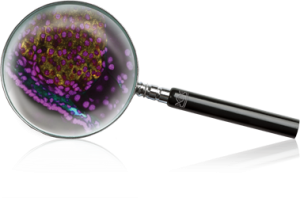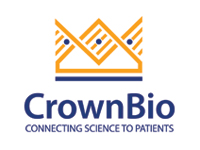Prior to clinical studies in humans, an investigational new drug (IND) must be submitted to the FDA containing, among other things, information on any risks anticipated based on the results of pharmacologic and toxicological data collected during studies of the compound in animals.
FDA requires tests to be conducted in at least 2 animal species, this usually involves a small animal model (rodents, rabbits, guinea pigs) and a large animal model (dogs, pigs, nonhuman primates). Nonhuman primates are usually chosen as the second animal model for testing due to the close similarities in physiology shared with humans, and they naturally develop chronic diseases such as type 2 diabetes and its complications. In consequence, these studies are an integral part of the non-clinical safety assessment of new ph armaceuticals.
armaceuticals.
The studies when designed correctly guide selection of a safe starting dose for humans, provide understanding of which organs may be the targets of toxicity, estimate the margin of safety between a clinical and a toxic dose, and in some cases, predict pharmacokinetic and pharmacodynamic parameters. These early tests are usually resource intensive, requiring significant investment in product synthesis, animal use, laboratory analyses, and time. Safety pharmacology studies are of special interest, and some drawbacks and pitfalls must be considered (i.e. invasive methods, difficulties related to GLP (good laboratory practices) requirements, choice of a strategy).
This webinar will share both design and methodology guidance in Non-GLP Toxicology studies in both NHPs and rodent models. The presenters will guide you in how to design the most optimal study to provide the greatest opportunity to generate robust, high quality data, that gives maximum confidence to select new drug candidate’s and regulatory submissions.
Attendees will learn about:
- How to optimize design of Non-GLP toxicology studies for generating robust, high quality data
- What pitfalls to avoid in choosing a design strategy and proper methodology to give maximum confidence in study results
Speakers
Dr. Keefe Chng, Chief Scientific Officer and Site Head, Crown Bioscience Louisiana (CBLA, Inc.) No vowels in last name Photo coming
Dr. Keefe Chng has over 18 years of extensive experience in academia and industry, working with nonhuman primate models involving Baboons, Rhesus and Cynomolgus macaques. He has developed and worked on models including: organ and bone marrow transplantation, adult mesenchymal stem cells, AAV transduction, in utero growth, neonatal development and nutrition, adult obesity, weight loss, chronic metabolic diseases, metabolic function tests, nephropathy, liver steatosis, pharmacokinetics, MRI imaging, medical devices, and brain-computer interface for motor control. He is responsible for training and establishment of NHP research programs, and has helped to develop primate facilities in Asia and in the USA.

Dr. Judith Gorski, Global Director of Scientific Engagement. Crown Bioscience Inc.
Dr. Judith Gorski is Global Director of Scientific Engagement at Crown Bioscience Inc., and is a pharmacologist with over 18 years of experience in drug discovery and development in a large pharmaceutical environment. She has extensive experience in basic research and targeted drug discovery in the disease areas of type 1 and 2 diabetes, dyslipidemia, atherosclerosis, obesity, and metabolic syndrome. Dr. Gorski has co-authored publications in Nature, Obesity, Obesity Research, Cell Metabolism, Journal of Lipid Metabolism.
Prior to joining CrownBio, Dr. Gorski’s work at Merck focused on target identification/validation and small molecule and biologics identification/optimization with the aim of recommending lead candidates for clinical development. She is an expert at establishing and validating primary, secondary and tertiary in vivo models of dyslipidemia, obesity, metabolic syndrome, and type 1 and 2 diabetes.
Dr. Gorski received her Ph.D. in Neuroscience from University of Medicine and Dentistry, New Jersey.
Who Should Attend?
Scientists and decision makers working in Toxicology Studies
Relevant Job Functions:
- Principal Scientists
- Principal Investigators
- C-level/VPs/Directors of Drug Discovery and R&D
- C-level/VPs/Directors of Preclinical Trials
Industry segment:
- Pharmaceutical & Biotechnology companies
Xtalks Partner
Crown Bio
Crown Bioscience is a global drug discovery and development solutions company providing translational platforms to advance oncology and metabolic disease research. With an extensive portfolio of relevant models and predictive tools, Crown Bioscience enables clients to deliver superior clinical candidates.
CrownBio’s CVMD portfolio is a unique continuum of translational platforms that enables our clients to model human cardiovascular and metabolic disease pathologies and uses them to predict human efficacy and safety of therapeutic candidates. With unique rodent and non-human primate models and a vast set of services, we help accelerate drug development in the areas of:
You Must Login To Register for this Free Webinar
Already have an account? LOGIN HERE. If you don’t have an account you need to create a free account.
Create Account



